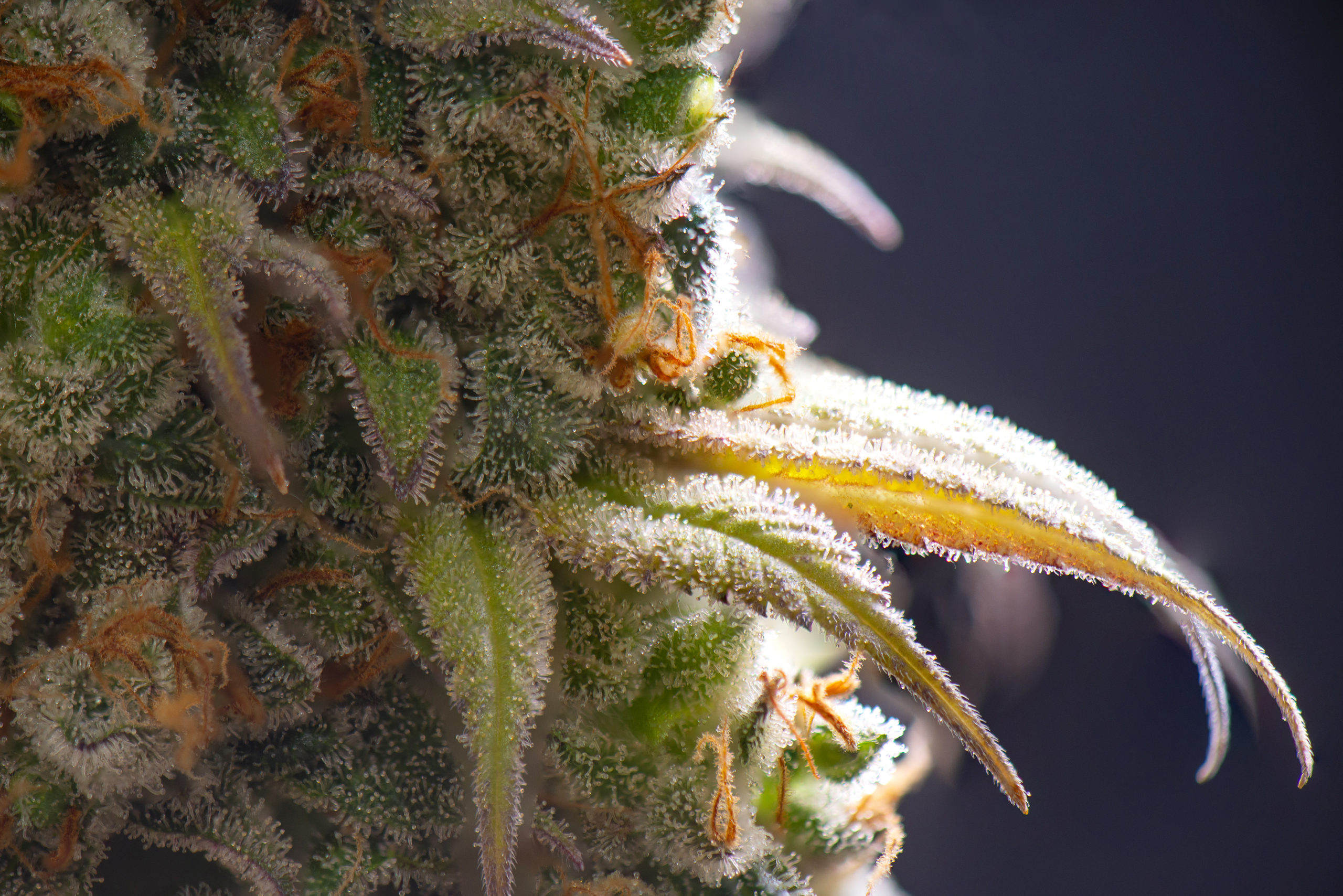-
- Market Research
- |
- CBD Near Me
- |
- Giveaways
- |
- Newsletter
- |
- Contact
- |
- Advertise
- |

CBD is well-known to help with several conditions, such as anxiety, pain, and epilepsy. However, it may be shocking to know that CBD and the endocannabinoid system have been studied in relation to dozens of conditions. We’ve picked the ones that have specifically studied CBD, which has led to our list of 29 conditions.
29 Conditions That CBD May Treat
Researchers from all over the globe have found evidence that CBD may treat a wide variety of conditions, ranging from skin disorders to liver diseases.
While most of this research is in the preliminary phase, and some studies only focus on the endocannabinoid system, it has helped popularize the CBD and provide hope for people who deal with these conditions.
Our list is not exhaustive, but these are the conditions that CBD specifically has the strongest scientific support to potentially treat.
1. Acne
Several studies have been conducted on CBD and the endocannabinoid system for acne. A study by Tamás Bíró at the University of Debrecen found that CBD at the right dose can prevent lipid formation and reduce acne.
2. ADD/ADHD
Research on animals shows that CBD can inhibit hyperactivity and reverse deficits in social interaction. In a human study, researchers at King’s College London, led by Ruth E. Cooper, found that Sativex (a CBD:THC ratio of 1:1) improved hyperactivity and inattention.
3. Addiction
Much research has been done on CBD for treating addiction related to several substances. Specifically, studies indicate CBD may help with addiction to alcohol, cannabis, cocaine, heroin, morphine, meth, nicotine, opioids, and tobacco. A clinical trial led by Yasmin Hurd, Ph.D, at Mount Sinai Medical Center in New York observed that CBD reduced cravings and anxiety in individuals recovering from heroin addiction.
4. Alzheimer’s Disease
Several studies support the use of CBD and cannabis for Alzheimer’s. In an open-label study, researchers from The Universitat de Barcelona and the Carlos III Health Institute in Spain found that cannabis-based medicine helped reduce memory impairments in mice with late-stage Alzheimer’s.
5. Anxiety
CBD may help with several anxiety and stress disorders such as social anxiety disorder or phobias. A study by researchers at the University of São Paulo found CBD significantly reduced anxiety, cognitive impairment, and discomfort in individuals during a simulated public speaking test.
6. Arthritis
CBD has “potent” anti-inflammatory properties that can help treat arthritis, according to studies. A study by researchers at the Royal National Hospital for Rheumatic Diseases in the UK found that using Sativex (CBD:THC ratio of 1:1) reduced pain at movement and rest in individuals with rheumatoid arthritis.
7. Asthma
Research suggests CBD has promise for reducing asthma symptoms. Researchers from multiple Brazilian universities led by Francieli Vuolo found that CBD significantly suppressed inflammation-inducing cytokines in the lungs of asthmatic rats. These same cytokines are found in human asthma.
8. Autism
A study by Israeli researchers from Ben-Gurion University, along with the Father of Cannabis Research Raphael Mechoulam, found CBD to have quality of life benefits for over 80% of the participating children with autism. CBD helped with irritability, anxiety, and social behavior.
9. Cancer
Studies have found several benefits of CBD for cancer. One study led by Dr. Julian Kenyon at the Dove Clinic in England found that a synthetic form of CBD had a clinical response in 92% of patients, shrinking tumors in some patients and halting growth in others. While Dr. Kenyonh does not consider it a standalone treatment, CBD can help kill cancer cells and reduce pain in cancer patients.
10. Inflammatory Bowel Conditions
Researchers have found CBD to be helpful for Crohn’s disease, Colitis, inflammatory bowel syndrome, and related conditions. A study conducted at the Department of Gastroenterology at Tel Aviv University found that cannabis improved quality of life conditions, decreased disease activity, and increased weight gain and BMI in chronic patients.
11. Depression
Similar to anxiety, research shows CBD may be effective for depression as well. Researchers at the University of São Paulo found that CBD had anti-depressant effects in mice, which they believe is mediated by the serotonin receptors.
12. Diabetes
A study conducted at the Hadassah University Hospital showed that CBD may treat or prevent diabetes by inhibiting insulitis—a disease of the pancreas—and suppressing the inflammatory response of cytokines.
13. Epilepsy
CBD has been clinically proven to treat epilepsy. Led by Brenda Porter, researchers at the Department of Neurology at Stanford University found that a CBD medication significantly reduced seizures in children with difficult-to-treat epilepsy.
14. Fibromyalgia
A study at the Institut de Recerca Hospital del Mar in Spain found that using cannabis in general could help elicit a significant reduction in pain and stiffness for those with fibromyalgia.
15. Glaucoma
Researchers at the Medical College of Georgia provided evidence that CBD may help fight glaucoma by protecting neurons from excessive glutamate, which kills retinal neurons.
16. Heart Disease
A growing body of research shows that CBD may help with different types of heart disease. Led by Dr. Sarah Walsh, researchers at the Institute for Health & Welfare Research at Robert Gordon University found CBD reduced ventricular arrhythmias and attenuated infarct size.
17. HIV/AIDS
Scientists at Harvard Medical School have found evidence that CBD can inhibit the growth and cause the death of kaposi sarcoma cells, which are cancerous cells often associated with HIV and AIDS.
18. Huntington’s Disease
CBD’s neuroprotective properties have potential to inhibit the progression of Hungtington’s Disease or improve the quality of life in patients, according to a study by researchers from Universidad Complutense in Spain.
19. Kidney Disease
According to a study led by Pan Shiyuan, Ph.D, researchers at Zhejiang University in China found CBD can decrease nephrotoxicity (toxins in the kidneys) by reducing oxidative stress, inflammation, and kidney cell death, all of which helps improve kidney function.
20. Liver Disease
Research shows that CBD may help various liver diseases. Specifically, a study by researchers at the Department of Pharmacology and Systems Therapeutics at Mount Sinai School of Medicine found CBD could inhibit fibrosis, the scarring of the liver during liver disease.
21. Migraine
While there are only a handful of studies on CBD for migraine, an Italian study led by Dr. Maria Nicolodi found a combination of CBD and THC significantly reduced migraine pain, while also selectively reducing the frequency of migraine and cluster headaches.
22. Multiple Sclerosis
A combination of CBD and THC in the medication Sativex effectively reduced muscle spasms, inflammation, and nerve pain in MS patients, according to research by scientists at Hospital Universitari Vall d’Hebron in Spain.
23. Osteoporosis
Researchers have found that CBD can help heal bone fractures, inhibit bone resorption, and improve bone quality. A study by scientists from the Hebrew University of Jerusalem and the Institute of Biomechanics in Switzerland, which also included Raphael Mechoulam, found that CBD significantly enhanced fracture healing and promotes the bone-producing protein collagen.
24. Parkinson’s Disease
Researchers at the University of São Paulo in Brazil witnessed CBD have quality of life improvements for Parkinson’s patients, such as for sleep, functional mobility, cognition, and depression.
25. PTSD
Studies indicate that CBD can affect memory and quality of life in PTSD. CBD reduced fear expression, disrupted the memory consolidation process, and lowered resistance to fear memory extinction in mice during a 2017 study by Brazilian researchers from the Federal University of Parana, the University of São Paulo, and the Federal University of Santa Catarina.
26. Schizophrenia
Several studies show that CBD has antipsychotic effects. Preliminary findings in a clinical trial led by Markus Leweke of the University of Cologne in Germany indicated CBD could be a safe and well-tolerated alternative treatment for schizophrenia.
27. Sleep Disorders
Research from scientists at the University of São Paulo suggests CBD dose-dependently increases sleep time. Other studies show it decreases anxiety to make falling asleep easier and treats REM sleep behavior disorder.
28. Stroke
One study by researchers at the Instituto de Investigación Puerta de Hierro Majadahonda in Spain about CBD and its effects on strokes found that the cannabinoid improved neurobehavioral function, reduced neuronal loss, and led to long-term recovery.
29. Weight Loss
CBD has been reported to affect appetite, often as a side effect for other purposes. Research has focused more on CBD for decreasing appetite. Researchers at the University of Reading in the UK found that CBD significantly reduced the amount of food consumed by rats while other cannabinoids increased their appetite.
What have you used CBD for? Let us know in the comments below!









6 Comments
Very nice looking infographics 🙂
Thanks Luke!
Very nice looking infographics 🙂
Thanks Luke!
Very nice looking infographics 🙂
Thanks Luke!